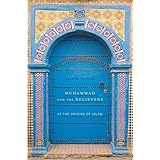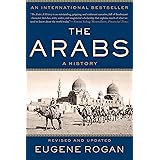
Enjoy fast, free delivery, exclusive deals, and award-winning movies & TV shows with Prime
Try Prime
and start saving today with fast, free delivery
Amazon Prime includes:
Fast, FREE Delivery is available to Prime members. To join, select "Try Amazon Prime and start saving today with Fast, FREE Delivery" below the Add to Cart button.
Amazon Prime members enjoy:- Cardmembers earn 5% Back at Amazon.com with a Prime Credit Card.
- Unlimited Free Two-Day Delivery
- Streaming of thousands of movies and TV shows with limited ads on Prime Video.
- A Kindle book to borrow for free each month - with no due dates
- Listen to over 2 million songs and hundreds of playlists
- Unlimited photo storage with anywhere access
Important: Your credit card will NOT be charged when you start your free trial or if you cancel during the trial period. If you're happy with Amazon Prime, do nothing. At the end of the free trial, your membership will automatically upgrade to a monthly membership.
Buy new:
-42% $18.93$18.93
Ships from: Amazon Sold by: ARO Books
Save with Used - Good
$6.18$6.18
Ships from: Amazon Sold by: RNA TRADE LLC

Download the free Kindle app and start reading Kindle books instantly on your smartphone, tablet, or computer - no Kindle device required.
Read instantly on your browser with Kindle for Web.
Using your mobile phone camera - scan the code below and download the Kindle app.

OK
 Audible sample Sample
Audible sample Sample 


Following Muhammad: Rethinking Islam in the Contemporary World (Islamic Civilization and Muslim Networks) Paperback – August 30, 2004
Purchase options and add-ons
- Print length272 pages
- LanguageEnglish
- PublisherThe University of North Carolina Press
- Publication dateAugust 30, 2004
- Dimensions5.25 x 1 x 8.25 inches
- ISBN-100807828378
- ISBN-13978-0807855775
The Amazon Book Review
Book recommendations, author interviews, editors' picks, and more. Read it now.
Frequently bought together

Customers who viewed this item also viewed
Editorial Reviews
Review
An impressive scholarly work."—The Telegraph-Calcutta
Well-written and lucid. . . . The book's narrative flow is generally masterful. Ernst successfully moves from present to past and back again in a manner that is both logical and clear to follow. . . . An elegant and masterful presentation of a religious tradition in an accessible manner, as well as a heartfelt plea for non-Muslims to understand it." —American Journal of Islamic Social Sciences
A pleasure to read. Ernst has a multilayered and self-assured understanding of Islam, and his writing exemplifies a fluency in explaining it that is unique to him. . . . Delicate and complex points about Islam as a religion and culture, about Sufism, and even about Osama bin Laden, flow off the page effortlessly. . . . The book's greatest strength is Ernst's unrelenting but well-reasoned critique of how the West has consistently marginalized Islam and Muslims from the first encounters onward. Ernst is fair, however— while he admonishes the West for indulging in negative and inaccurate stereotypes of Islam and Muslims, he calls upon Muslims to participate fully in the pluralistic society the world has become."—Publishers Weekly
In seeking to restore a sense of proportion and balance to the image of Islam for his Western readers, Ernst gives proper weight to the layers of mystical humanism, philosophical speculation and hermeneutical flexibility that are no less a part of the Islamic tradition than the legacies of conquest and militancy. He also points out that intolerance and bigotry are far from being the exclusive prerogative of the Western media industries." —Times Literary Supplement
A helpful resource for university religion departments. It is not a straight 'Islam 101' resource, and because of that, it is very refreshing. . . . A very helpful tool as an introduction to a course on Islam and contemporary religion."—Journal of the American Academy of Religion
Ernst introduces the larger Islamic world and its history in engaging, thought-provoking prose. . . . Readers will come away with a good understanding of the different schools of Islamic thought and practice. . . . Ernst's obvious passion for Islam comes through quite beautifully here, and the rare mix of clear writing and careful scholarship makes this an important purchase for any Islamic studies collection."—Booklist
This timely volume should be recommended enthusiastically to anyone who wants to gain a nuanced and balanced understanding of the contested position of Islam in the modern world. It fully deserves to be recognized as the single best choice for academic courses dealing with Islam and Middle Eastern studies, in both the undergraduate and graduate levels. . . . This is the rare work that only a scholar at the very zenith of his/her field can write, an even more daunting task given all the polemics about Islam today. There is no better, more profound place to begin - or end - a sophisticated discussion about contemporary Islam than Ernst's masterpiece."—Middle East Journal
Ernst provides an overview of Sufism, Shi'ism, and Islamic art. Here we really see the richness and diversity of this tradition."—Spirituality and Practice
Review
From the Inside Flap
From the Back Cover
About the Author
Product details
- ASIN : 0807855774
- Publisher : The University of North Carolina Press; 9/27/03 edition (August 30, 2004)
- Language : English
- Paperback : 272 pages
- ISBN-10 : 0807828378
- ISBN-13 : 978-0807855775
- Item Weight : 10.7 ounces
- Dimensions : 5.25 x 1 x 8.25 inches
- Best Sellers Rank: #1,290,577 in Books (See Top 100 in Books)
- #330 in Muhammed in Islam
- #485 in Islamic Rituals & Practice (Books)
- #499 in Sufism (Books)
- Customer Reviews:
About the author

Carl W. Ernst is a specialist in Islamic studies, with a focus on West and South Asia. His published research, based on the study of Arabic, Persian, and Urdu, has been mainly devoted to the study of Islam and Sufism. His book Following Muhammad: Rethinking Islam in the Contemporary World (UNC Press, 2003) has received several international awards, including the Bashrahil Prize for Outstanding Cultural Achievement (Cairo, 2004). He has received fellowships from the Fulbright program and the National Endowment for the Humanities. In 2009 he received a John Simon Guggenheim Foundation Fellowship, and he was elected a Fellow of the American Academy of Arts and Sciences. His current research projects include a study of the Qur’an as literature, studies of Muslim interpreters of Indian religions, and a translation of the Arabic poetry of al-Hallaj.
He studied comparative religion at Stanford University (A.B. 1973) and Harvard University (Ph.D. 1981). He has done extended research tours in India (1978-79, 1981), Pakistan (1986, 2000, 2005), and Turkey (1991), and is a regular visitor to the Gulf, Turkey, and Iran for lectures and conferences. He has taught at Pomona College (1981-1992) and has been appointed as visiting lecturer in Paris (EHESS, 1991, 2003), the University of Seville (2001), and the University of Malaya (2005). On the faculty of the Department of Religious Studies at the University of North Carolina at Chapel Hill since 1992, he has been department chair (1995-2000) and Zachary Smith Professor (2000-2005). He is now William R. Kenan, Jr., Distinguished Professor (2005- ) and Director of the Carolina Center for the Study of the Middle East and Muslim Civilizations. He and Bruce Lawrence are co-editors of the Islamic Civilization and Muslim Networks Series at the University of North Carolina Press.
Customer reviews
Customer Reviews, including Product Star Ratings help customers to learn more about the product and decide whether it is the right product for them.
To calculate the overall star rating and percentage breakdown by star, we don’t use a simple average. Instead, our system considers things like how recent a review is and if the reviewer bought the item on Amazon. It also analyzed reviews to verify trustworthiness.
Learn more how customers reviews work on Amazon-
Top reviews
Top reviews from the United States
There was a problem filtering reviews right now. Please try again later.
This last issue dove-tails into the only significant critique I have of the book - namely, that I wanted MORE detail, MORE examples etc. As I mentioned, Ernst is a great reservoir of information on Islam and one cannot therefore help but want to hear more from him. However, I certainly understand the need to limit the scope of any one portion of the book, and there is a good deal ahead after these opening issues. The remainder of the book looks very much like a somewhat unconventional, though still very good, introductory text on Islam - with sections on Muhammad, the Qur'an, Sufism, ethics etc.
To conclude, one of the reasons I like Ernst's book is because he challenges us to think twice about how we look at the world - he asks us to reflect critically on certain issues (colonialism, Western scholarship, Christianity etc.) that, for some, might be difficult or awkward. But, asking us to do this does not make him an apologist for radical Islamists - it simply means he's painting a more complex picture and, if there is anything we should admit about Islam and its study, it's that 1400 years of history demands such complexity.
I read this in conjunction with Rippin's "Muslims: Their Religious Beliefs and Practices" and found "Following Muhammed" to be much more easy to read and follow.
Conventional discussions of Islam today begin with two vastly divergent points: There is the mushrooming and uneven body of political writings about Islam that focus on the Middle East, collapsing the 1400 years of Islamic history into the last two generations, particularly since the creation of the state of Israel. The other discourse about Islam is philological in nature, focusing on "classical" (i.e., pre-modern) legal, Qur'anic, and philosophical texts usually in Arabic. Carl Ernst posits a different starting point, one so radically brilliant and simple that one has to ask why more scholars have not adopted this perspective. Ernst starts by examining Islam as a religious tradition, one shaped and understood through the human lens of practitioners of this tradition. As such, he approaches Islam not in a transcendent timeless fashion, or as one fixed eternally in the 7th century, nor yet as a variable only of interest for understanding the post-colonial trauma of the last 40 years. Instead, Ernst moves with ease and grace through the 1400 years of practices, rituals, institutions, and ideas that have been marked as Muslim. He does not focus on the Arab world exclusively, but recognizes that 82% of all Muslims are non-Arab, with the majority being South and South East Asians. He judiciously avoids the many traps and pitfalls that mar conversation about contemporary Islam. He refuses to yield the discussion of Islam to Salafis who insist that all of Islam must be collapsed to Qur'an and hadith. While probing the crucial sources of Islam, Ernst also engages Islamic ethics, spirituality, music, literature, philosophy, and piety. It is this holistic and humanistic approach that few scholars of Islam can undertake with such mastery, and here is where Ernst truly shines. No less than this is expected of Ernst, who most today regard as the leading Western scholar of Sufism, the true heir to the incomparable Annemarie Schimmel, to whom the volume is dedicated.
Nor does Ernst restrict his challenge only to Muslim blind spots: He also takes on dominant Western triumphalist notions. Here again Ernst breaks with the crowd in documenting that it is not simply a result of simple Western misunderstanding that Muslims comes across as inhuman or subhuman. He carefully documents that the blind spots are directly tied to the shameful period of colonialism, a period to which many -particularly in America - seem to have an allergic or amnesic reaction. His discussions of European colonialism, American imperialism, the impact of Zionism, and the political debates over Orientalism are a model of depth, balance, and insight. In the writings of lesser scholars, these analyses are filled with polemics and apologetics. Commendably, Ernst manages to steer away from these pitfalls.
The book is set out in six succinct and highly readable chapters: Islam in the Eyes of the West, Approaching Islam in Terms of Religion, The Sacred Sources of Islam, Ethics and Life in the World, Spirituality in Practice, and a postscript. Ernst's mastery of the spiritual, ethical, and aesthetic realms of Islam stands out clearly in having devoted two chapters to these crucial topics. Far too often in introductory volumes, the picture of Islam that emerges is that of a purely legalistic, ritualistic tradition completely bereft of beauty, art, and love. Ernst's work nicely reflects the historical understanding of many Muslims, one that is shaped as much by the spiritual teachings of Sufi masters and ethicists as it is by Qur'anic virtues.
UNC Press has positioned this text as the leading volume in their forthcoming series Islamic Civilization and Muslim Networks, and has done a superb job in its production. The book is beautifully illustrated, containing eight pictures and six luminous calligraphy pieces by the contemporary South Asian calligrapher, Rasheed Butt.
This timely volume is recommended enthusiastically to anyone who wants to gain a nuanced and balanced understanding of the contested position of Islam in the modern world. It fully deserves to be recognized as the single best choice for academic courses dealing with Islam and Middle Eastern studies, at both the undergraduate and graduate levels. While one cannot recommend it strongly enough to students and scholars of Islam, hopefully political scientists and historians of the Middle East and beyond, not to mention policy makers, will also avail themselves of it. Ernst's volume breaks new theoretical ground while remaining completely accessible to the intelligent lay reader. This is the rare work that only a scholar at the very zenith of his/her field can write, an even more daunting task given all the polemics about Islam today. There is no better, more profound place to begin - or end - a sophisticated discussion about contemporary Islam than Ernst's masterpiece.
Omid Safi, Assistant Professor of Islamic Studies, Colgate University
Co-chair for the Study of Islam Section at the American Academy of Religion
Editor, Progressive Muslims: On Justice, Gender, and Pluralism (Oxford: Oneworld, 2003).
Top reviews from other countries
The chapter on spiritualism is rather limited in it's scope. Went away wanting more.
The book is very new and very clean















